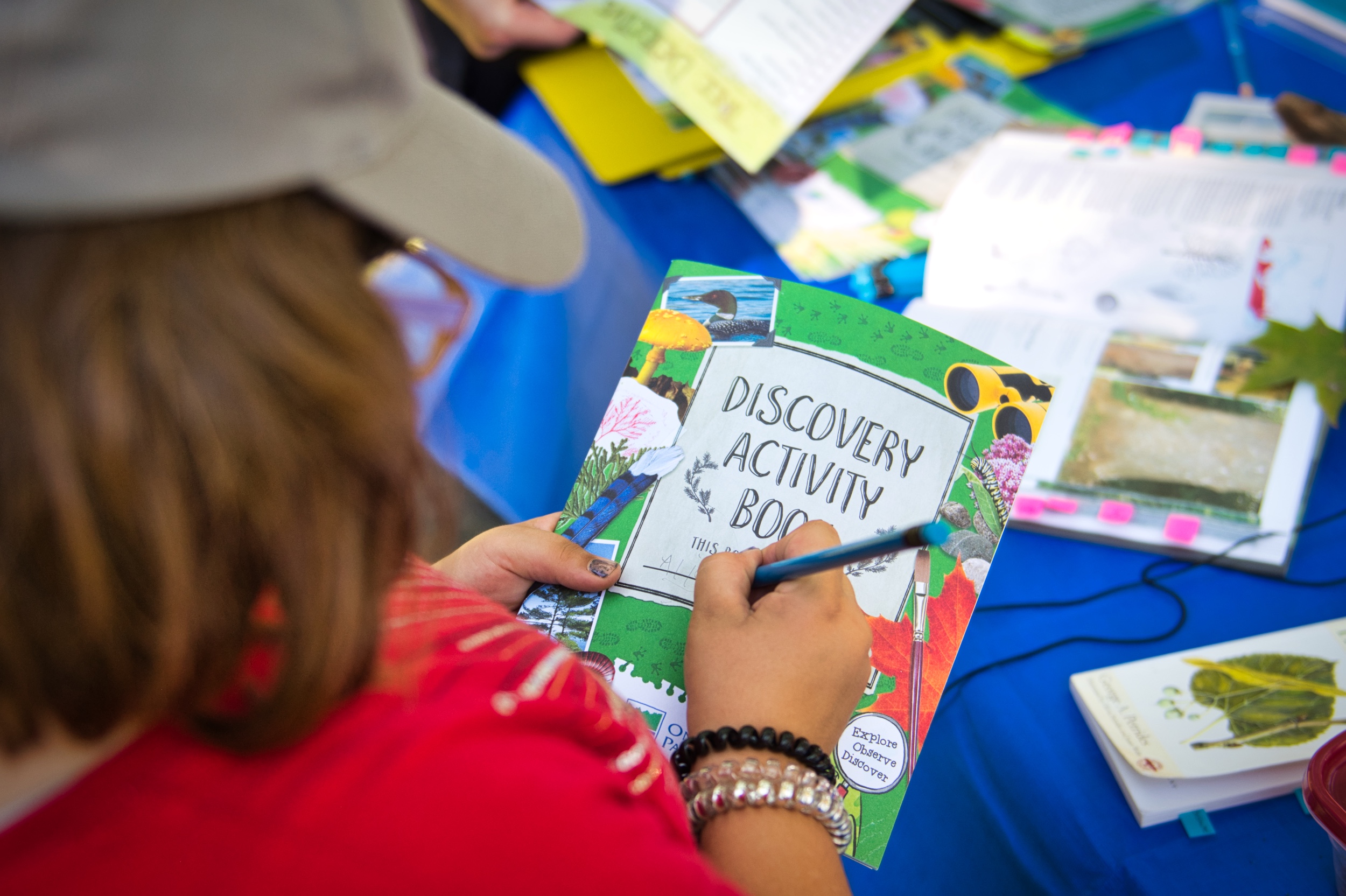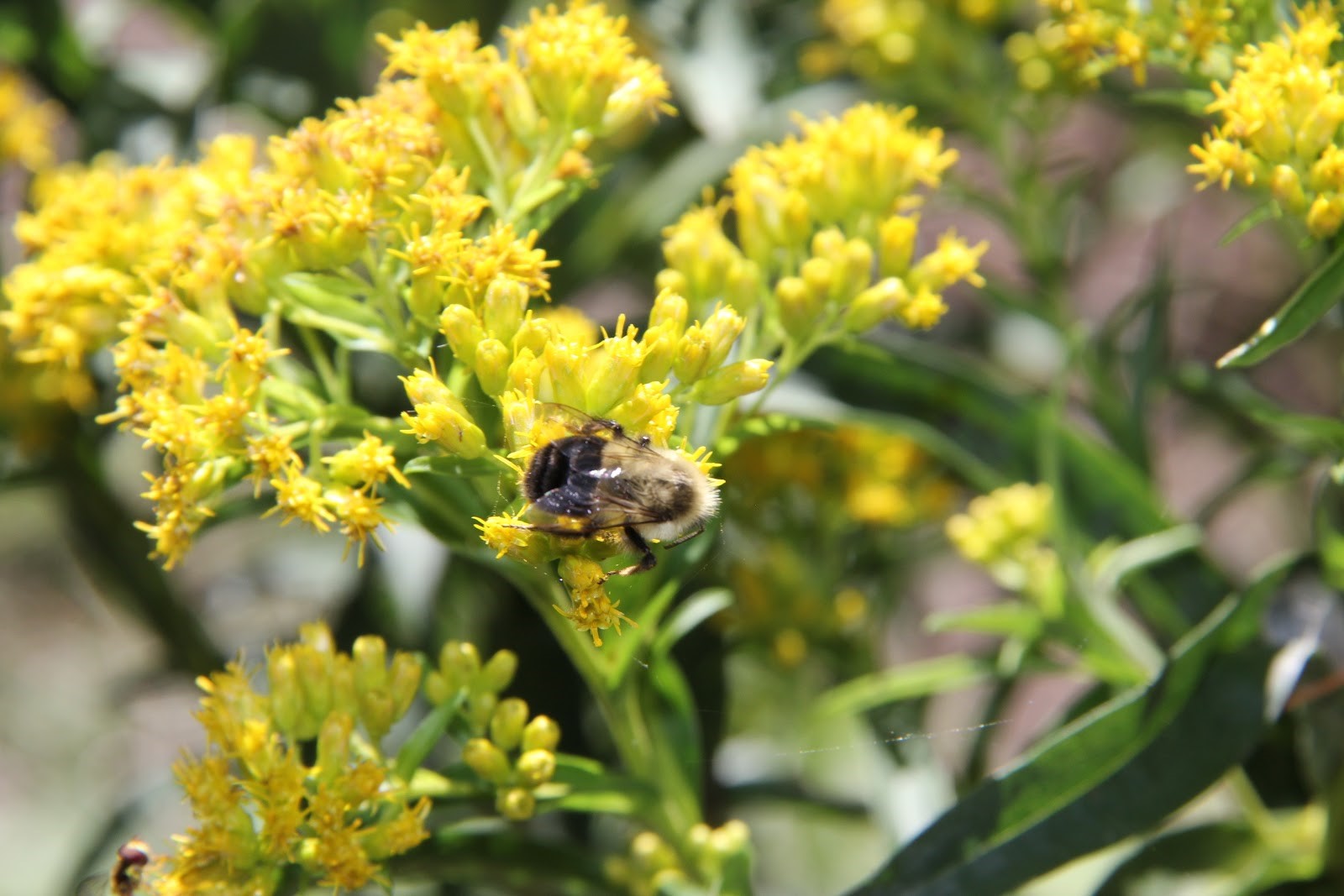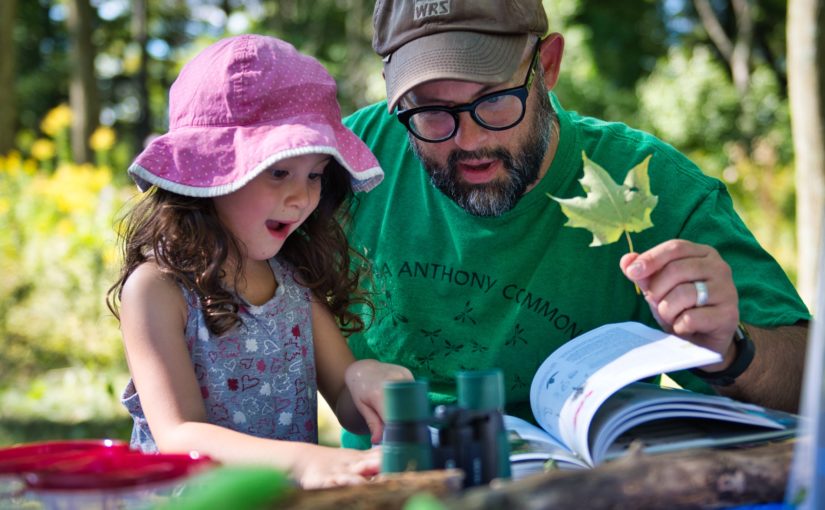Today’s post comes from Olivia Pomajba, a summer student at Rondeau Provincial Park.
“I hold no terrors in these hands
I am but a vessel to unknown lands
There is nothing to fear but fear itself
Of what, the memory of love or wealth
You will take my hand, make no mistake
A new life starts as you awake.”
— Graham Jones, “Fear of the Unknown”
Breaking out of your comfort zone might seem frightening, but that’s where growth happens. The Ontario Parks Discovery Program helps translate the fear of the unknown into empowerment and exploration.
No wrong answers
As interpreters in the school program at Pinery and Rondeau Provincial Parks, we hosted school groups at the park and traveled to local schools to deliver programming.

This not only brings nature into the classroom, but reaffirms the value of exploration in school curriculum.
In schools, the Discovery model flips the classroom around to focus on the curiosity of students. This model empowers students to explore on their own using questions that have no wrong answers.
Here’s an example of a traditional question mode: “Based on its talons, what might the Bald Eagle eat?”
The lesson really stalls until a student offers a correct answer, like “fish.” This black-and-white discussion does not necessarily lend itself to the complexity of nature, or value creativity.
Instead, the Discovery model asks: “what do the Bald Eagle’s talons remind you of?”
There is no wrong answer.
The Bald Eagle’s talons remind some students of their family cat’s claws, a sharp steak knife, or even a tool that the dentist uses!

We discuss Bald Eagle characteristics in the context of the connections students made with the bird. This way, we are creating real life connections with nature.
Students are challenged to self-reflect, make connections, and wrestle with big questions. Their life experiences and ideas have value and help us better understand nature and how people relate to it.

This inquiry-based learning differs greatly from simply transmitting facts to students. It empowers them to discover on their own terms, and to ask their own questions. The Discovery model gives students the confidence to explore nature.
Exploring the unknown
The mysteries of our ecosystems remain vast and deep. According to the UN Convention on Biological Diversity, we share our planet with as many as 13 million living species, of which only 1.75 million have been named and recorded.
Ontario’s provincial parks are ecological hotspots, teeming with tiny invertebrates and colorful fungi. There is so much that has yet to be discovered!

This idea that our ecosystems are full of mysterious, unknown life is overwhelming and exciting. Tools like iNaturalist help students to participate in citizen science, and their sightings contribute to important research.
Ontario Parks are for everyone
We are not required to know certain facts or be able to identify certain birds or plants. With respect for lived experiences and with reverence to the diversity of life in our parks, the Discovery Program allows us to make meaningful connections with nature.

The Discovery Pogram allows students to lead their own exploration with interpreters helping to facilitate this discovery. We are challenged to emerge from our comfort zone and embrace the unknown.
There is so much to explore and there is no limit to what we can discover.
